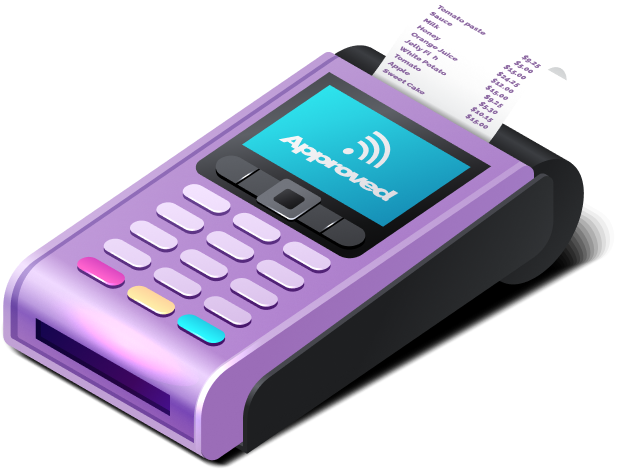How to Choose the Best POS Software for Your Retail Store
Selecting the right Point of Sale (POS) software is crucial for the success of your retail store. A good POS system can streamline your operations, enhance customer experience, and provide valuable insights into your business performance. However, with so many options available, it can be challenging to determine which one is best suited for your needs. This comprehensive guide will help you navigate through the essential factors to consider when choosing the best POS software for your retail store.
1. Identify Your Business Needs
Before diving into the features and options of different POS systems, it’s crucial to identify your specific business needs. Consider the following aspects:
- Type of Products: Do you sell physical goods, digital products, or a mix of both?
- Business Size: Are you a small boutique or a large retail chain?
- Volume of Transactions: How many transactions do you process daily?
- Special Requirements: Do you need specific features like inventory management, customer relationship management (CRM), or e-commerce integration?


2. Essential Features to Look For
A good Point-Of-Sale software system should offer a range of features that enhance your store’s efficiency and customer satisfaction. Here are some essential features to consider:
- User-Friendly Interface: o you sell physical goods, digital products, or a mix of both?
- Inventory Management: Look for systems that offer real-time inventory tracking, low stock alerts, and automated purchase orders.
- Sales Reporting and Analytics: Detailed reporting tools that provide insights into sales trends, customer behavior, and inventory performance are vital for informed decision-making.
- Customer Management: Features like customer profiles, purchase history, and loyalty programs help improve customer service and retention.
- Payment Processing: Ensure the POS system supports various payment methods, including credit/debit cards, contactless payments, and mobile wallets.
- Integration Capabilities: The ability to integrate with other systems such as accounting software, e-commerce platforms, and marketing tools is essential for seamless operations.
- Security: Robust security features to protect sensitive customer data and prevent fraud are non-negotiable.
3. Consider Your Budget
POS software for retail stores comes in a range of prices, from affordable solutions for small businesses to more expensive, feature-rich systems for larger enterprises. Determine your budget and consider both the upfront costs and any ongoing fees, such as monthly subscriptions, transaction fees, or costs for additional features and support. While it’s important to find a system that fits your budget, remember that investing in a quality POS system can lead to significant long-term savings and revenue growth.


4. Cloud-Based vs. On-Premise POS Systems
POS systems can be either cloud-based or on-premise. Each has its advantages and disadvantages:
Cloud-Based POS Systems:
Cloud-Based POS Systems:
- Advantages:Access data from anywhere, automatic updates, lower upfront costs, and ease of scalability.
- Disadvantages: Dependence on internet connectivity and potential data security concerns.
- Advantages:Greater control over data, no reliance on internet connectivity, and potentially better security.
- Disadvantages: Higher upfront costs, need for in-house IT support, and limited scalability.
5. Evaluate Customer Support and Training
Even the best POS system can encounter issues or require updates. Therefore, excellent customer support is crucial. Look for vendors that offer 24/7 support, multiple contact channels (phone, email, chat), and comprehensive training resources. Training is particularly important to ensure your staff can use the system effectively, reducing the likelihood of operational disruptions.

6. Read Reviews and Request Demos
Before making a final decision, read reviews from other retailers to learn about their experiences with different POS systems. Pay attention to both positive and negative feedback to get a balanced perspective. Additionally, request demos from shortlisted vendors. A demo allows you to see the system in action, evaluate its ease of use, and determine if it meets your specific needs.
7. Consider Scalability and Future-Proofing
Your business needs today might not be the same as tomorrow. Choose a POS system that can scale with your business growth. Consider the system’s ability to add new features, support additional stores, and integrate with emerging technologies. Future-proofing your POS software for retail store investment ensures you won’t need to switch systems as your business evolves.

8. Compliance and Legal Requirements
Ensure that the Point-Of-Sale software complies with local laws and industry standards, such as tax regulations and data protection laws (e.g., GDPR, PCI-DSS). Compliance not only avoids legal issues but also builds trust with your customers.
Conclusion
Choosing the best POS software for your retail store is a critical decision that can significantly impact your business operations and customer satisfaction. By identifying your specific needs, considering essential features, evaluating your budget, and assessing customer support, you can find a POS system that not only meets your current requirements but also scales with your future growth. Take the time to research, read reviews, and request demos to make an informed decision. A well-chosen POS system is an investment that can streamline your operations, enhance customer experience, and drive your business success.
Contact us to upgrade your retail store with the best POS software
FAQs
1. What are the key features to look for in a POS system?
Essential features include a user-friendly interface, inventory management, sales reporting and analytics, customer management, versatile payment processing, integration capabilities, and robust security measures.
2. How do I determine whether to choose a cloud-based or on-premise POS system?
Cloud-based systems offer flexibility, automatic updates, and lower upfront costs, ideal for businesses with good internet connectivity. On-premise systems provide greater control over data and do not rely on internet connectivity, suitable for businesses with in-house IT support.
3. Why is customer support important when choosing a POS system?
Reliable customer support ensures that any issues with the POS system are quickly resolved, minimizing disruptions to your business. Look for vendors offering 24/7 support and comprehensive training resources.